Singapore is at the forefront of adopting cutting-edge technologies, and AI agents are no exception. But what exactly are AI agents, and why are they crucial for Singapore's future? Here's a detailed look at the key aspects you need to know about all things agentic.
1. What are AI agents?
AI agents are intelligent software systems designed to perform complex, dynamic tasks autonomously. These agents can understand context, reason and plan tasks, perform actions, and make informed decisions in real-time. They are designed to work independently, while collaborating with other AI agents and human experts when required.
According to Gartner, an industry analyst, AI agents are the top strategic technology trend for 2025.
By 2028, at least 15% of day-to-day work decisions will be made autonomously through agentic AI, up from 0% in 2024. — Gartner
2. Business transformation & trends in Singapore
According to the National Business Survey 2023/2024 conducted by the Singapore Business Federation, 9 in 10 businesses acknowledged the importance of business transformation. The top 3 focus of transformation are operational processes (70%), products/services (68%) and customer experience/service (66%) — areas which Agentic Process Automation excels.
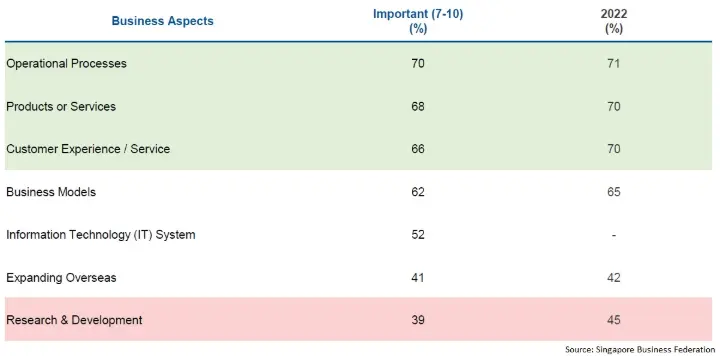
Diving deep into the data, about 2 in 3 companies are planning or have adopted AI in their businesses with process automation in operations (53%) and cybersecurity (51%) as the most preferred areas.
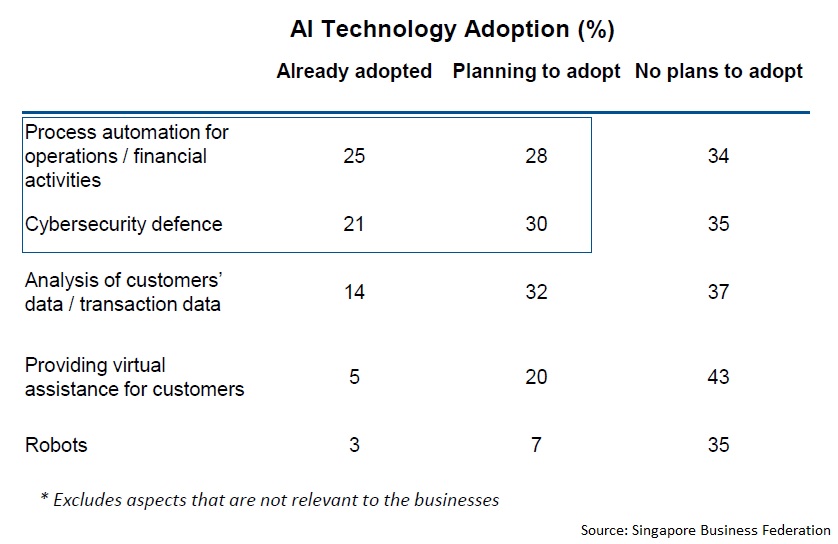
Consistent with the trends that we are seeing with technology adoption in general, the top 3 challenges cited are high costs (61%), lack of knowledge (61%) and concerns over data privacy and security (40%).
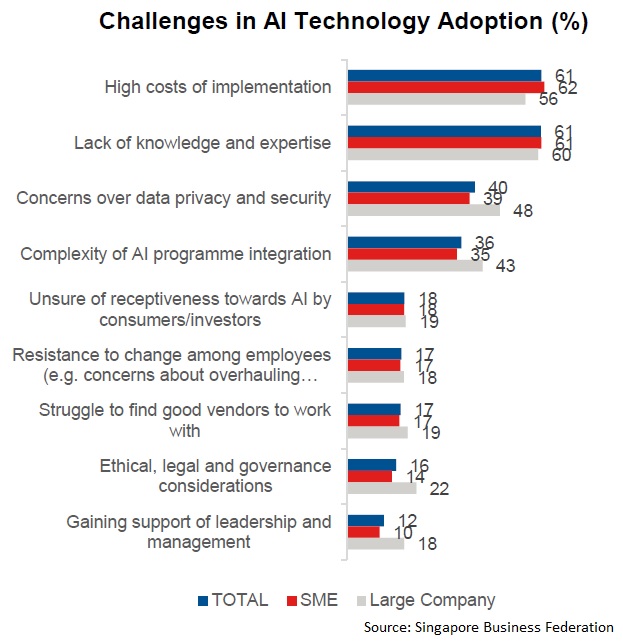
3. A LLM built for Southeast Asia, by Southeast Asia
Large Language Models (LLMs) are at the core of AI agents, enabling them to process, understand, and generate human-like responses with contextual relevance. Recognizing the need for region-specific AI capabilities, AI Singapore has developed South East Asian Languages in One Network (SEA-LION)—a family of open-source Large Language Models (LLMs) designed to better understand Southeast Asia’s diverse languages, cultures, and contexts.
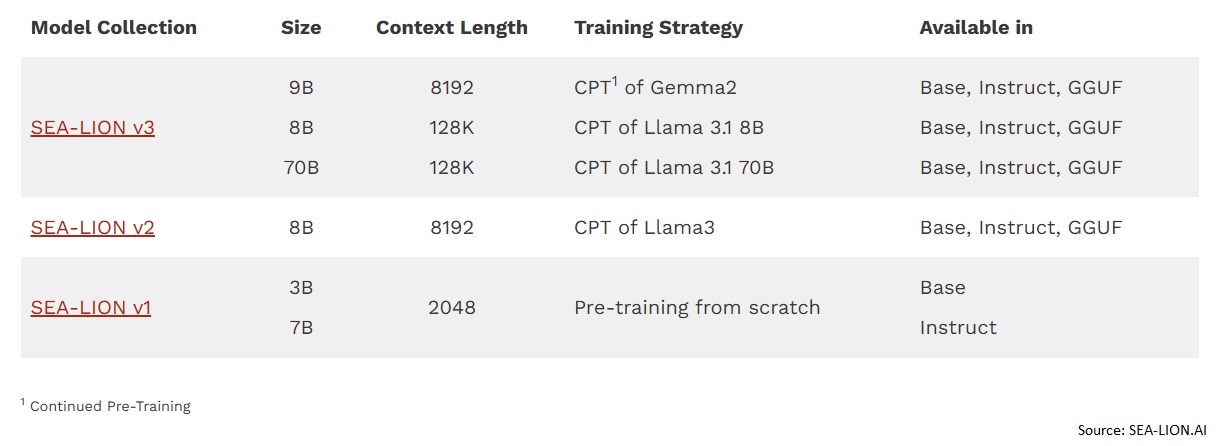
As part of Singapore’s National Multimodal LLM Programme (NMLP), SEA-LION aims to bridge the gap for underrepresented populations and low-resource languages across the region. The NMLP, a S$70 million initiative launched in December 2024, is led by the Infocomm Media Development Authority (IMDA), the Agency for Science, Technology and Research (A*STAR) and AI Singapore to drive AI innovation, strengthen national AI research and development, and nurture AI talent. A key focus of this initiative is developing multimodal and localized LLMs that can better interpret Southeast Asian cultural nuances and linguistic diversity—such as handling seamless context-switching between languages in multilingual Singapore.
Fun fact: If you've ever struggled to understand Singlish, you're not alone! Websites like Chimbridge Singlish Dictionary act as an online Singlish-to-English dictionary, helping locals and visitors alike decode uniquely Singaporean phrases like lah, shiok, and bojio. Imagine how much smarter AI agents could be with a built-in Singlish translator—maybe future LLMs will finally be able to reply properly when you say "Eh, can help or not?"
4. Singapore is ranked number 1 in Asia Pacific for AI readiness
According to the Asia Pacific AI Readiness Index 2023 by Salesforce, Singapore continues to lead the Asia-Pacific region in AI readiness, securing the top position across all key metrics: overall AI readiness, business AI readiness, and government AI readiness. This dominance is underpinned by a robust policy framework, substantial government investment, and a dynamic AI ecosystem. The city-state has implemented several forward-thinking initiatives to accelerate AI integration across key sectors, including the National AI Program in Government, the National AI Program in Finance, the AI in Healthcare Guidelines, and AI Verify—the world’s first AI governance testing framework.
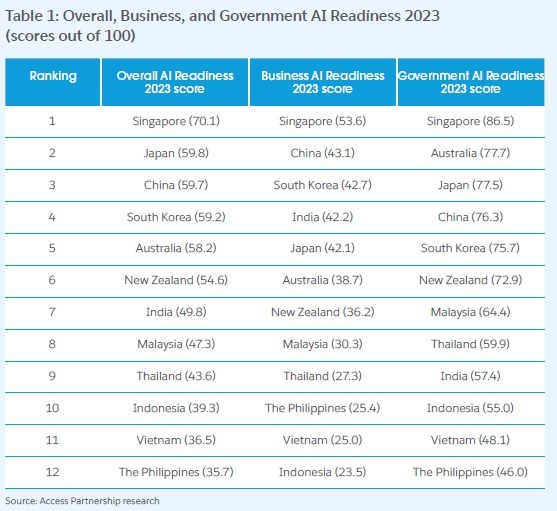
From a business standpoint, Singapore's core industries—financial services, healthcare, transport and logistics, and tourism—have been swift in adopting AI-driven solutions to enhance efficiency and competitiveness. The country leads in key indicators such as the adoption of emerging technologies, business sophistication, and venture capital availability—factors that contribute to the vibrancy and longevity of its AI startup ecosystem. However, similar to other economies, AI adoption among small and medium enterprises (SMEs) remains a challenge, highlighting the need for targeted support to drive broader industry-wide transformation.
5. Government grants for AI adoption
The Singapore government provides a number of grants to assist businesses in the adoption of AI technology. One prominent example is the Enterprise Development Grant (EDG) which supports projects that enable local companies to upgrade, innovate, grow and transform their businesses. Supported projects typically fall under the Innovation and Productivity category, e.g. adoption/development of sophisticated agentic AI solutions (automation) and exploring the use of agentic process automation or workflows to automate processes (process redesign).
In addition, there is also the Productivity Solutions Grant (PSG) which strives to help Singapore companies improve their productivity and automate existing processes through the adoption of sector-specific and generic solutions that are pre-approved by Enterprise Singapore and other participating agencies. One example of such digital solution is chatbots for customer engagements. Accordingly to the website, "chatbots can automate responses to customer enquiries on digital platforms, enhance customer engagement via personalized recommendations and seamless interactions, collect feedback from customers to help businesses to improve their products and services, as well as automatically capture and follow-up on leads to increase conversions and drive sales."
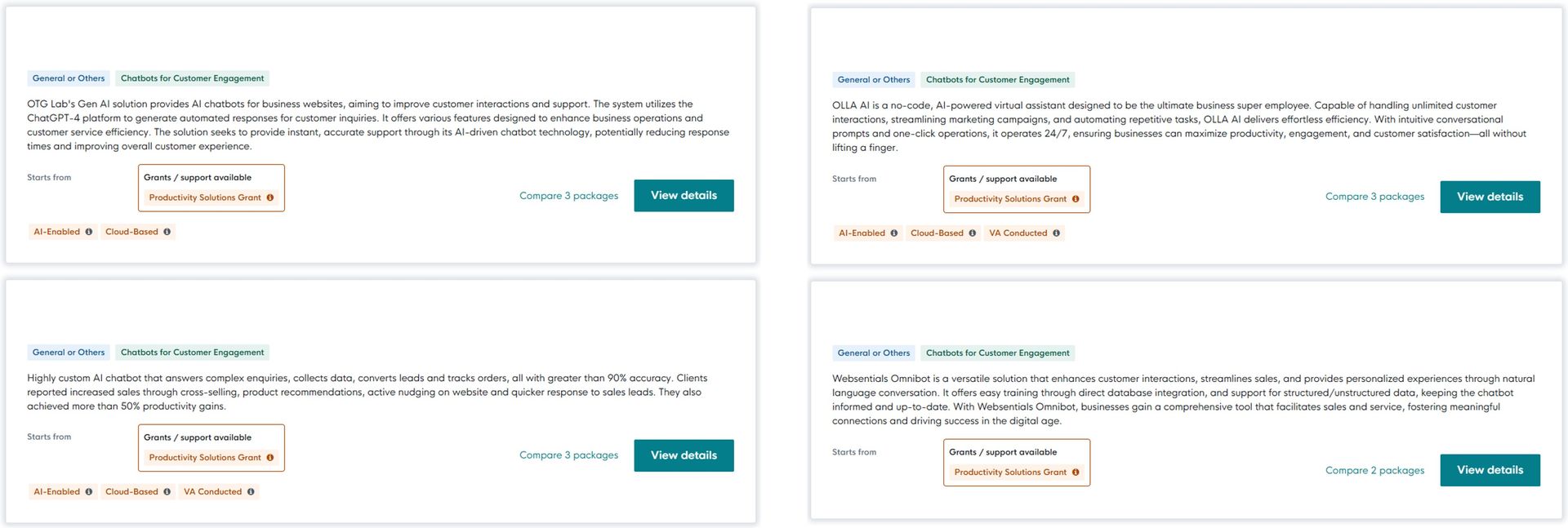
6. Launch of Enterprise Compute Initiative in Singapore Budget 2025
In his Budget 2025 speech on 18 February 2025, Finance Minister and Prime Minister Lawrence Wong announced the launch of the Enterprise Compute Initiative, with up to $150 million allocated to support businesses in harnessing AI and advanced computing.
Under this initiative, eligible enterprises will gain access to AI tools, computing resources, and expert consultancy through partnerships with major cloud service providers.
Recognizing the growing need for customized AI solutions that integrate seamlessly into business operations, this initiative aims to empower enterprises to leverage AI more effectively in their digital transformation journey. By addressing both technological and business challenges, it seeks to accelerate AI adoption across industries and enhance business competitiveness in today's digital age.
6 Things You Need to Know About AI Agents (Singapore Edition)